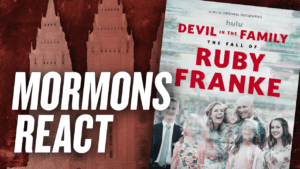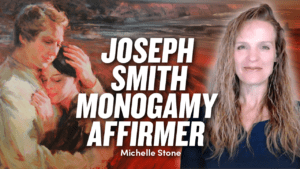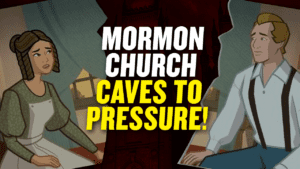In this new series on Mormon Leadership, historian Matt Harris discusses Mormonism’s early racism, focusing on the priesthood and temple ban for Black members. He explores the church’s opposition to civil rights, the experiences of Black Latter-day Saints like Jane Manning James and Elijah Abel, and the evolving theology around race. Harris challenges misconceptions about prophetic revelation and the origins of the ban, shedding light on this complex and painful history.
We are thrilled to announce that we have reached our donation goal to compensate Dr. Matt Harris for his contributions to this series. We sincerely thank everyone who supported this effort. While the goal to pay Matt has been met, producing this series incurred significant costs for the Open Stories Foundation. If you find value in this content and want to help cover these expenses and support future productions, we encourage you to donate at mormonstories.org/donate. Your generosity makes a difference—thank you!
Purchase Matt Harris’ book here: Second-Class Saints: Black Mormons and the Struggle for Racial Equality: Harris, Matthew L.




4 Responses
What a great episode!! I love history and I listen to quite a few history podcasts. I found Matt to be knowledgeable and also kind to people who still believe. He didn’t bad mouth or slander. He also didn’t give opinions just facts. A true historian. I hope this can continue and I will definitely be buying the book and making a donation.
I have ordered the book and am looking forward to it. I have some personal history with this sensitive issue. In 1969 I was a student at the University of Arizona in my junior year. I was majoring in Public Administration at the time and was in a core class with several black students, some of whom were on the Football team. You might recall that at that time there arose a controversy as to whether or not football teams including the University of Arizona should continue to play BYU in light of what was largely perceived to be racially based discrimination.
As the only known Mormon in that class it fell to me to try as well as I could to explain this policy. I explained as best I could but exclaimed that the policy would be changed sooner rather than later. I made that prediction with a full understanding from the writings of Church leaders that such a policy could not be changed without revelation, and that the general view of such could not be expected to happen until “the last of Abel’s posterity had come to this earth to receive their blessings”
Of course the Book of Mormon continues to proclaim God’s racism and his punishment to the descendants of those the He deemed to have acted wickedly. Polygamy has been set aside by suspending its practice. But the racist nature of the Book of Mormon remains, and will do so until the Church admits that the book is not of ancient pre-Columbian origins but rather a restatement of commonly understood 19th century racist notions.
One thing that I did not hear that surprised me, is this from Brigham Young. “Shall I tell you the law of God in regard to the African race? If the white man who belongs to the chosen seed mixes his blood with the seed of Cain, the penalty, under the law of God, is death on the spot. This will always be so.”
That is obnoxious on its face but the last sentence may be even more important. “This will always be so”. consider the ramifications of that after the 1978 changes to the status of black people. How long is “always”?
Thank you for your research and thank you for creating the series. The information answers questions I have had since 1968 when I was 10 years old.